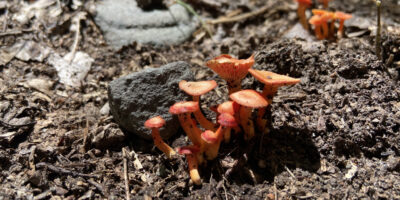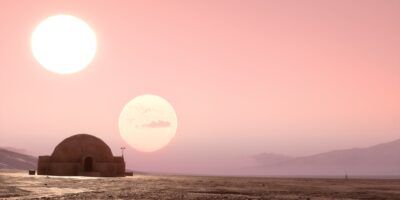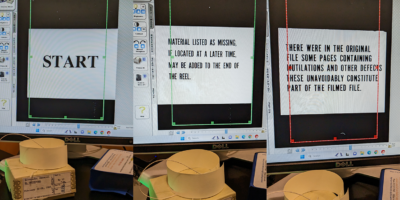By Jose David Hernandez Rivero, Roksana Azad, and Gisselle Mejia, in collaboration with Luis Henao Uribe
As part the 2018 Teach@CUNY Summer Institute (designed to help prepare doctoral students to teach for the first time across CUNY campuses), the Teaching and Learning Center offered a workshop on how to implement scholarly research as part of our teaching practices. Following our previous post on teaching your own research, we asked workshop attendees—in this case, graduate students in the sciences—to share their own experiences and thoughts about the challenges and opportunities they encountered in the classroom. Jose David Hernandez Rivero, Roksana Azad and Gisselle Mejia’s reflections are not exclusive to their disciplines; they invite us to keep finding ways to share our work with our students.
An audience
Understanding our audience is a crucial factor in communicating the nature of our academic work in different contexts. For Jose David Hernandez Rivero, from the Physics program, this is a challenge that not only applies to the classroom when he is teaching. He comments on the difficulty of reframing his research in different terms for various groups: “Learning to explain something to audiences that are not part of the scientific community is a difficult task, perhaps because of the required degree of sophistication of the language used to express scientific ideas.” Even the very idea of a scientific community that shares a common language can be misleading given the many different areas of specialty: “In the academic field of the sciences, it is commonplace for someone not to understand a seminar within an area if they are working on a different area… We are not talking about this happening only in a class with new students, but also at international conferences and workshops.” In this way, adapting to diverse audiences, with different degrees of familiarity with our research, is something that we already do as scholars and that needs to be brought into the classroom.
Roksana Azad, a student in the Biochemistry program, finds her ideas inspire her most when she has another audience in mind: “I always find it comforting when I can explain my work to my parents or grandparents and when they think that it’s important; it motivates me to work harder.” We often forget that the value of our work transcends the boundaries of our institutions. Recognizing our relationship with the public not only serves as validation of our journey as scholars but also as a guiding principle of our professional practice.
A language
When presenting our work to new audiences then, we need to be aware of the relationship between language and our specific discipline. As an instructor of an introductory course, this is one of the first challenges that Jose faced:
“Using analogies to everyday life is the best way to explain complex concepts. Let’s remember that we are humans, and we understand the world based on our own experience. If person X can understand quantum mechanics, then person Y can also do so because we all have practically the same learning skills… I wanted to tackle certain concepts in an obvious and intuitive way. How to explain what kind of force is a vector? I tried to start from the simple and arrive at the complex.”
By establishing basic concepts through an association of ideas that we can all grasp—like temperature, the number of students in a given class or the grid layout of New York City streets—Jose defines more elaborate notions: “To apply mathematical operations to concepts that we can define through intuition and language is a potent tool that allows us to understand forces, speeds and positions in a way that permits us to create rockets that are launched with precision to the moon.”
When facing a new audience unfamiliar with her discipline, Roksana thinks of a quote attributed to Albert Einstein: “If you can’t explain it to a six-year-old, you don’t understand it yourself.” That allows her space for self-reflection: “I find that by explaining my research to the general audience I always discover new ideas or questions about my work.” Drawing a distance between your work and the discipline in which it is typically situated can offer new perspectives while reinforcing the existing link with the public. As Jose puts it, physics is “a method to describe the world,” and, in that sense, similar to other sciences. Extrapolating from our own experience is what allows us to reach “unexplored territory.”
A discipline
When much of the work that we do as scholars is rooted in the particular traditions and debates within our fields, we can lose track of the different ways it relates to broader questions. “I certainly believe that each research project begins with questions that peak our interest” says Jose, “Those questions are processed by our own experience and by language, and I believe that bringing your questions to your class can stimulate more than offering answers to questions that no one in that room has formulated.” By presenting the questions that guide your own research to your students, you’ll be highlighting the ways that you approach your discipline. For Roksana, the classroom becomes a space for self-reflection and meaningful learning experiences that impact her own practices. She gives an example: “sometimes a small experiment in your research lab would be an entire week session in the lab class you are teaching. …. The students would benefit from learning that their lessons from a lab class are important and have broader application towards real life sciences. In addition, the instructor would understand the small experiments they do in the lab in more detail because of the lesson planning.” In this case, students become producers of knowledge and participants in a wider intellectual community.
When you make visible your own learning experience, you allow your students to identify the challenges of approaching a discipline, as well as potentially to embrace unfamiliarity and uncertainty as part of the process. For Jose, “another aspect of bringing your question to the room is to show that your discipline is not exclusively successful; it’s made by people of flesh and blood, not an arid landscape absent of surprise. Not all of those questions have been answered.”
Gisselle Mejia, from the Earth and Environmental Sciences program, points out that this kind of acknowledgment and practice “requires humbling ourselves, which is difficult because it is often discouraged in academia. We’re supposed to be experts and know-it-alls.” By presenting knowledge as a something that is produced as part of a process, informed by curiosity and exploration, we can instill in our students the principles of research that drew us to our disciplines.










Leave a Reply